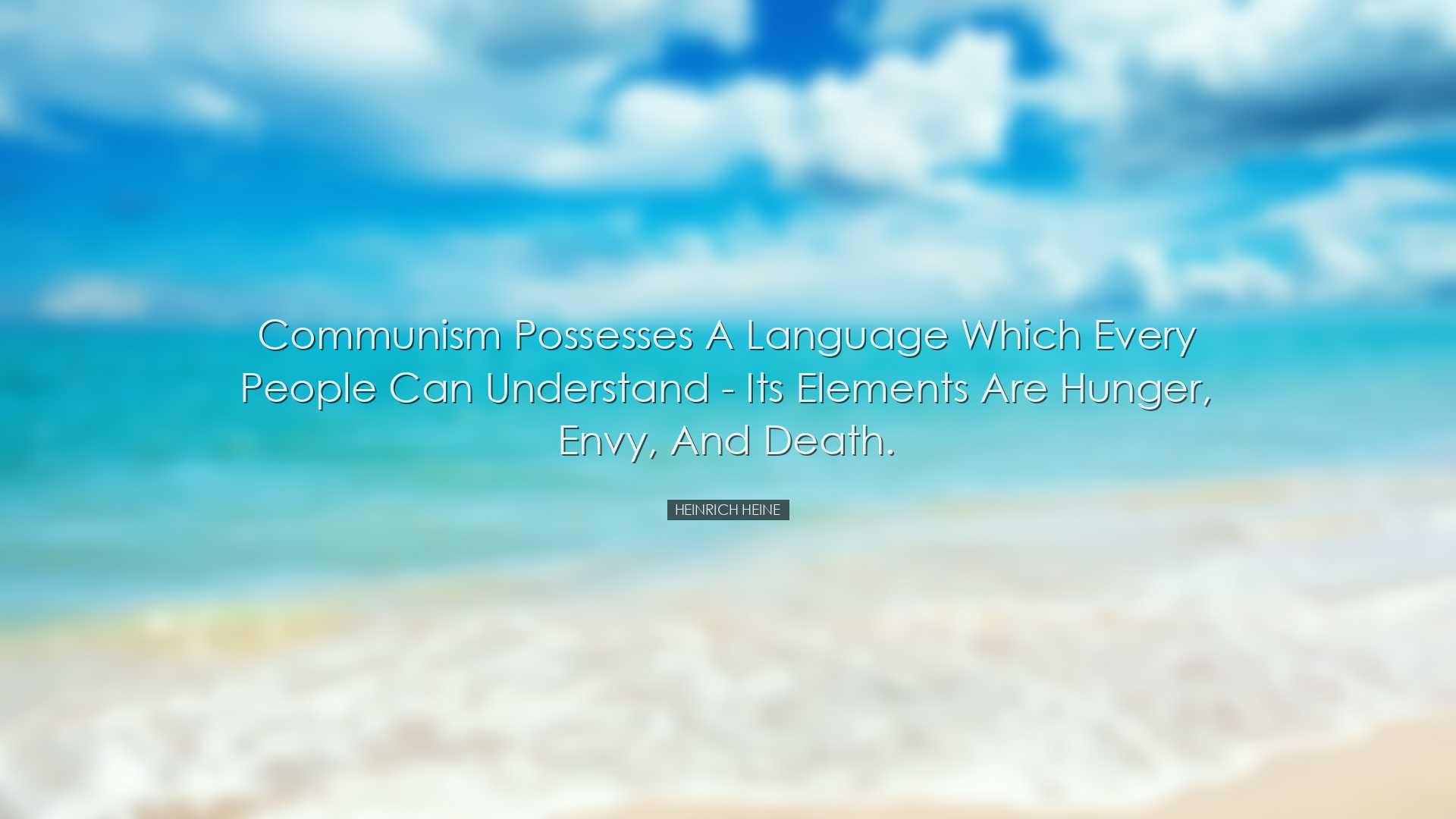Communism possesses a language which every people can understand – its elements are hunger, envy, and death. – Heinrich Heine
Quote by Heinrich Heine

Other quotes by Heinrich Heine
The foolish race of mankind are swarming below in the night; they shriek and rage and quarrel — and all of them are right. – Heinrich Heine
Category:
Author
If the Romans had been obliged to learn Latin, they would never have found time to conquer the world. – Heinrich Heine
Category:
Author
Other Quotes from
Death
category
